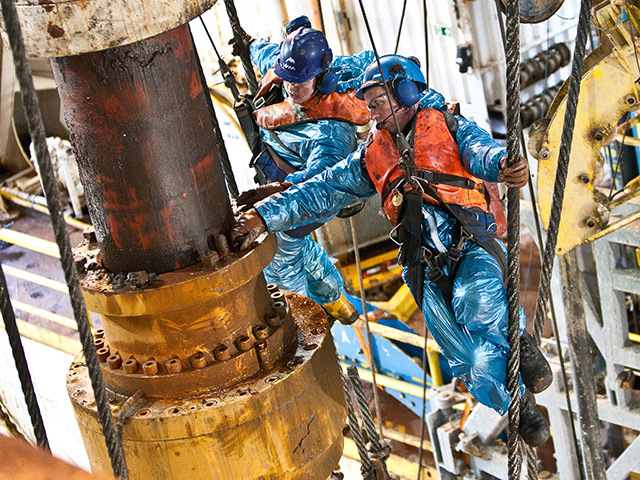
A second union has raised the prospect of industrial action by North Sea workers, accusing oil companies and contractors of “blatant opportunism” amid falling prices.
GMB Scotland claims the terms and conditions of its members in the offshore industry are under attack.
Officers will seek permission from the union’s regional committee to ballot members covered by the Offshore Contractors Agreement about possible strike action.
The agreement covers workers in mechanical, electrical and allied services, construction, maintenance, design, project engineering, fabrication and decommissioning.
Unite announced a similar move over the weekend after failed talks between the two unions and the Offshore Contractors Association (OCA), the body for offshore contractors based in Scotland, on Friday.
GMB Scotland regional officer John Kelly said: “There is a ’blatant opportunism’ on the part of some of the oil companies and contractors in seeking to fundamentally attack the terms and conditions of our members employed in the offshore industry.
“There are also major concerns over the proposed changes to shift rotas and the health and safety implications that could follow from a major change.
“GMB believes that any changes to rotas could have a serious impact on the safety of those working offshore and we urge the companies to rethink the proposals.
“I intend to seek permission to consult members as to what response they want to see the union taking, including a ballot for industrial action if the companies do not pull back on unilateral cuts.”
Bill Murray, chief executive of the OCA, said talk of strike action by the unions was “premature” with further meetings between the three parties scheduled to take place on February 25.
He said: “We are in a challenging time for the North Sea oil and gas industry.
“For some time we have experienced unsustainable levels of cost inflation and whilst recognition of the need to reduce this is not new, the dramatic fall in the price of oil has accelerated the need to address this.
“The industry is now facing a particular dilemma where operators are looking to reduce costs promptly, especially for those with operations where costs are outstripping revenue.
“The need for productivity enhancements and efficient working is well understood by the industry and was highlighted to union negotiators in talks in December. These talks are ongoing.
“The failure to agree on Friday concerns a particular issue going through our disputes procedure in support of one of our member companies who have been compelled at short notice to change rota pattern because the operator of the installation on which they are working has switched to a three-on/three-off rota pattern.
“Unite have complained that there was insufficient consultation on the change. Talk of strike action is premature.”
Recommended for you
